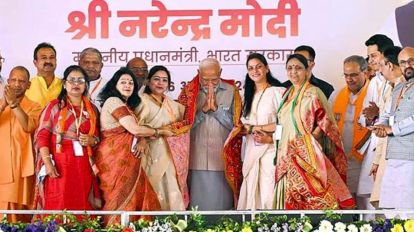New Delhi, April 7: During a recent election rally in Saharanpur, Prime Minister Narendra Modi’s remarks on the benefits of the triple talaq ban for Muslim women have sparked conversations within the Muslim community, particularly in Lok Sabha constituencies of western Uttar Pradesh with sizable Muslim populations.
Members of the Muslim community have emphasized the need for a more comprehensive approach to address the socio-economic challenges facing minorities. They argue that true empowerment goes beyond interference in personal laws and necessitates broader policies that uplift and support minority communities in various aspects of life.
Prime Minister Modi’s assertion that the triple talaq ban has been a boon for Muslim families has drawn mixed reactions among Muslim voters. While some acknowledge the importance of protecting women’s rights, others stress that the government’s focus should be on substantive issues affecting the socio-economic well-being of minorities.
In response to PM Modi’s remarks, voices within the Muslim community have highlighted concerns about the Citizenship Amendment Act (CAA) and the proposed National Register of Citizens (NRC), which have raised anxieties about the future of Muslim citizens. These policies, critics argue, raise questions about inclusivity and the treatment of minorities in India.
Furthermore, there is a call for greater attention to the educational and developmental needs of Muslim children and youth. Members of the community emphasize the importance of initiatives that promote access to quality education and enhance opportunities for minority youth to thrive and contribute meaningfully to society.
While acknowledging the government’s role in implementing welfare schemes for all citizens regardless of caste or religion, Muslim constituents express a desire for policies that specifically target the unique challenges faced by minority communities. They stress the importance of inclusive governance that addresses the concerns and aspirations of all segments of society.
In summary, while the ban on triple talaq is recognized as a positive step towards gender justice by a few people, the Muslim community in western Uttar Pradesh calls for a more comprehensive approach to minority empowerment that goes beyond legal interventions. There is a pressing need for policies that foster inclusivity, address socio-economic disparities, and ensure a brighter future for all, particularly minority populations.




